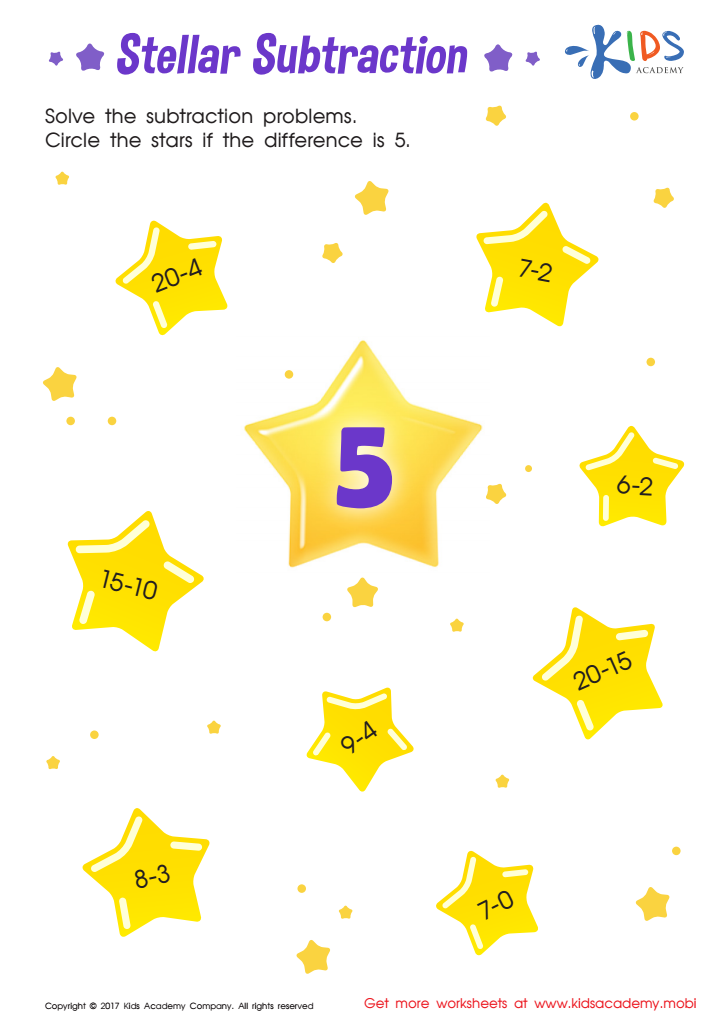Subtraction practice Addition & Subtraction Worksheets for 6-Year-Olds
57 filtered results
-
From - To
Discover our engaging Subtraction Practice Addition & Subtraction Worksheets designed specifically for 6-year-olds. These worksheets make math fun and easy, helping young learners build essential subtraction and addition skills through enjoyable activities. Each worksheet is thoughtfully crafted to reinforce key concepts, improve problem-solving abilities, and boost confidence in mathematics. Perfect for classroom use or at-home practice, these printables provide a solid foundation for early math development. Visit us today to explore our collection and support your child’s educational journey with high-quality, interactive resources from Kids Academy tailored for young mathematicians.
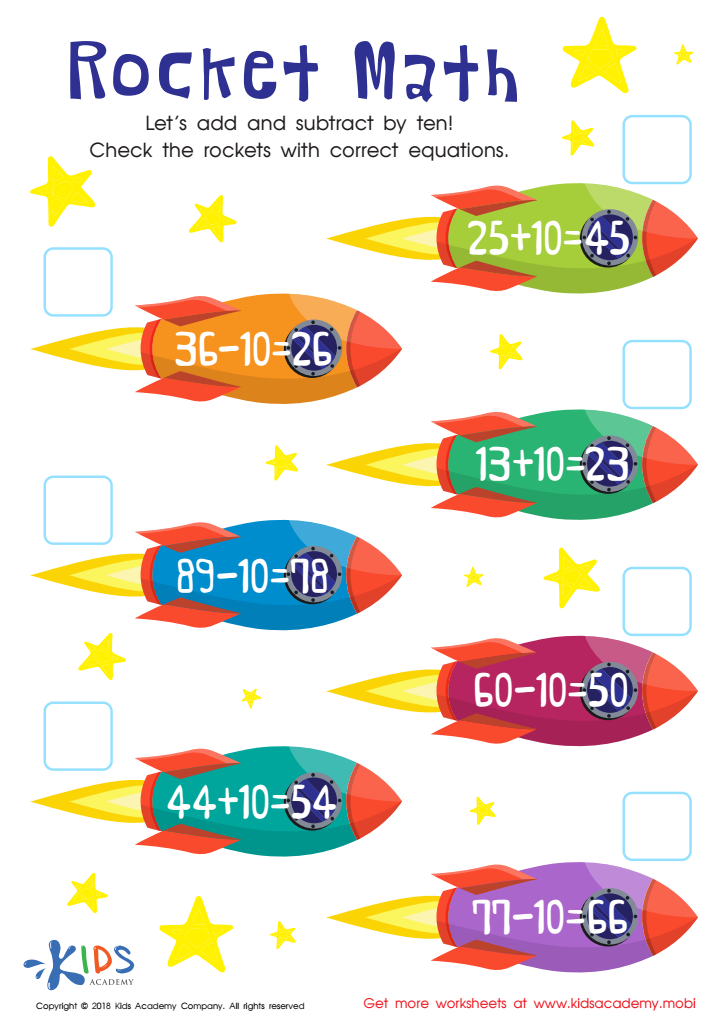

Rocket Math Worksheet
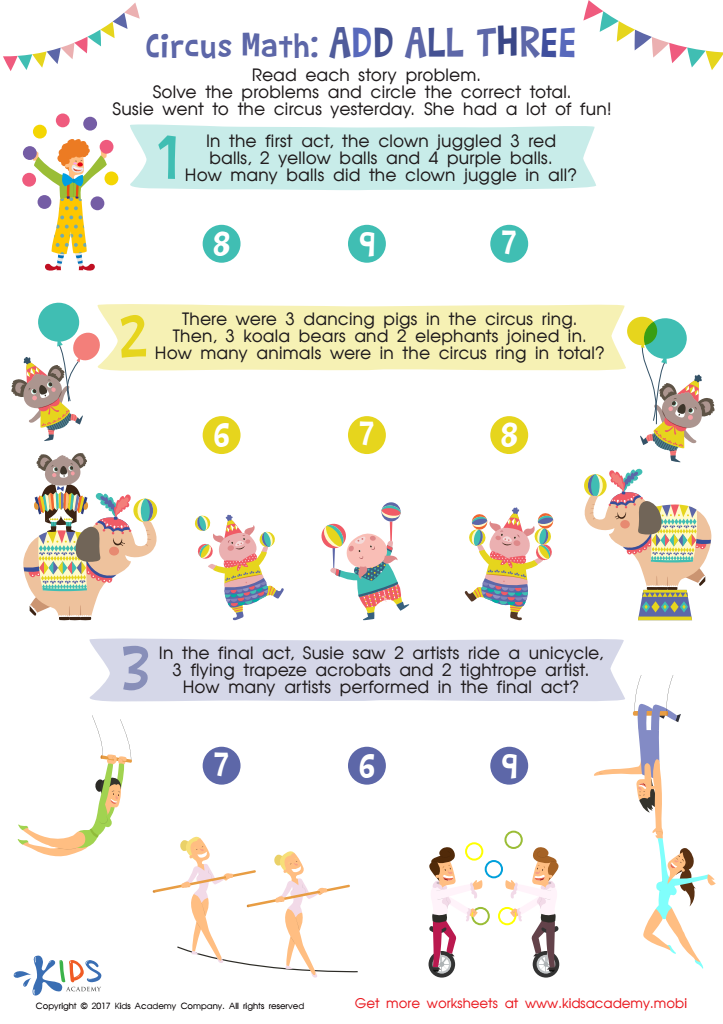

Circus Math Printable
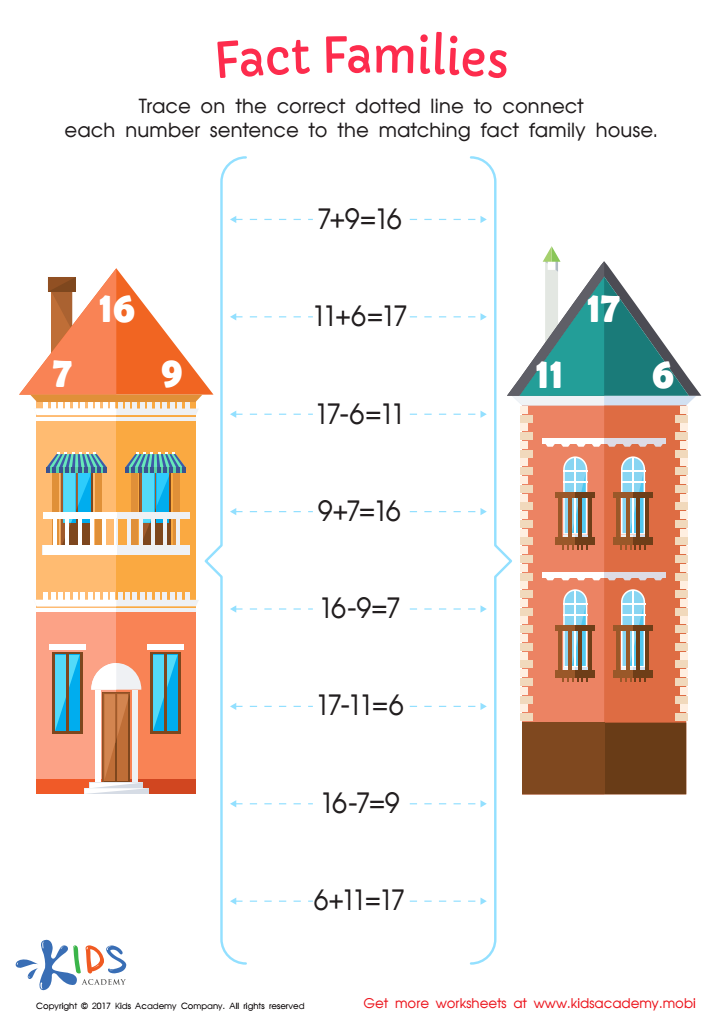

Fact Families — Add and Subtract Worksheet
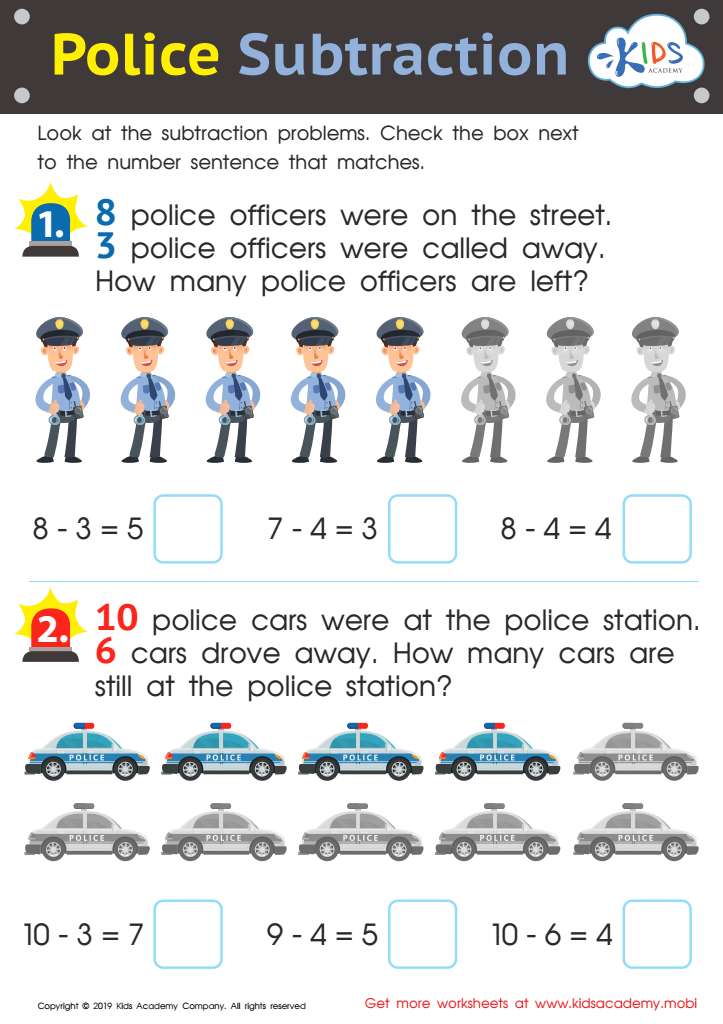

Police Subtraction Worksheet
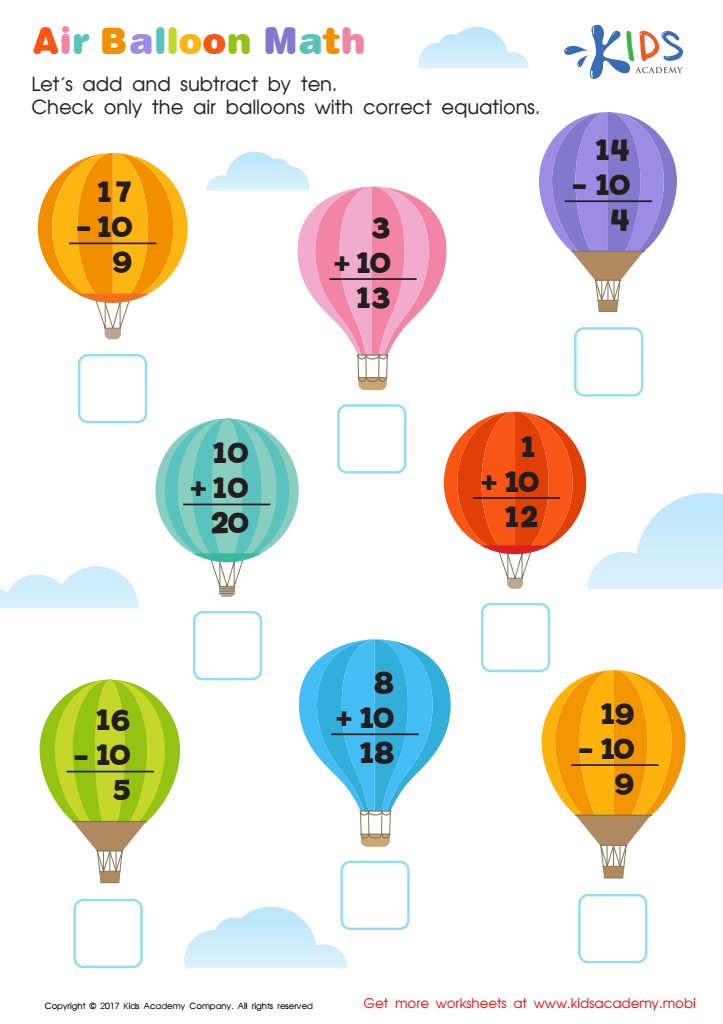

Air Balloon Math Worksheet
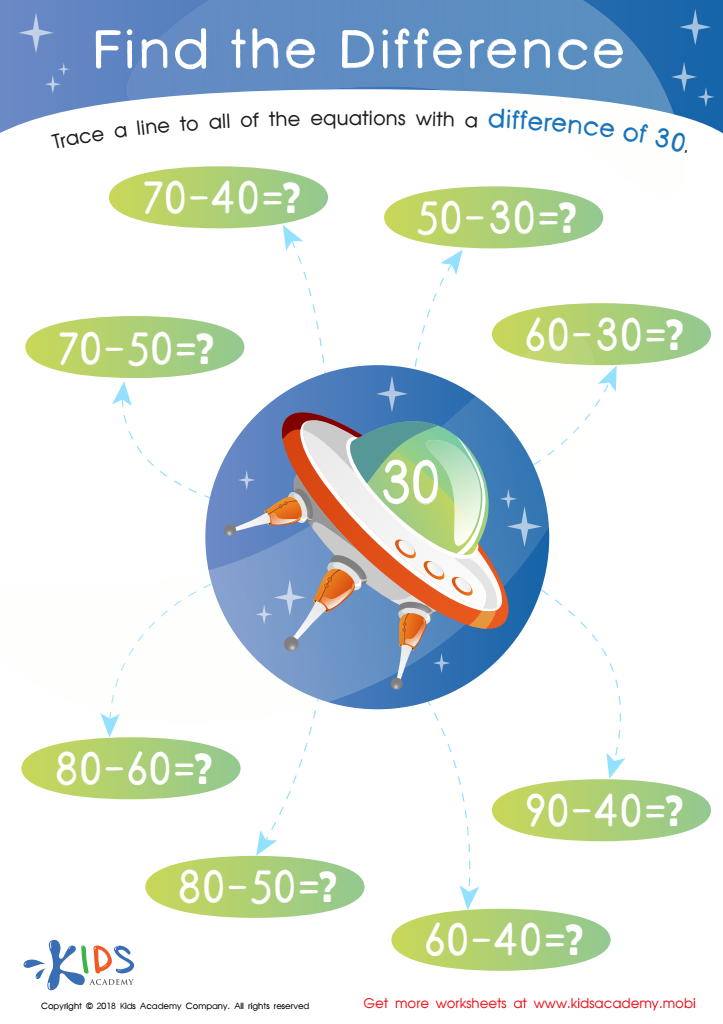

Find The Difference Worksheet
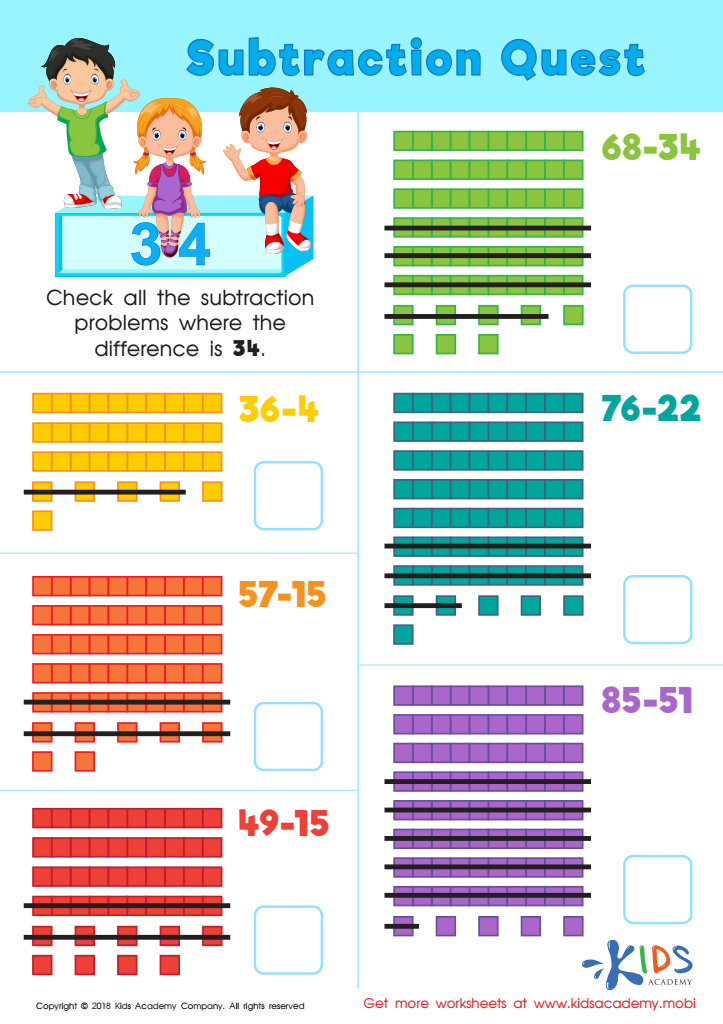

Subtraction Quest Worksheet
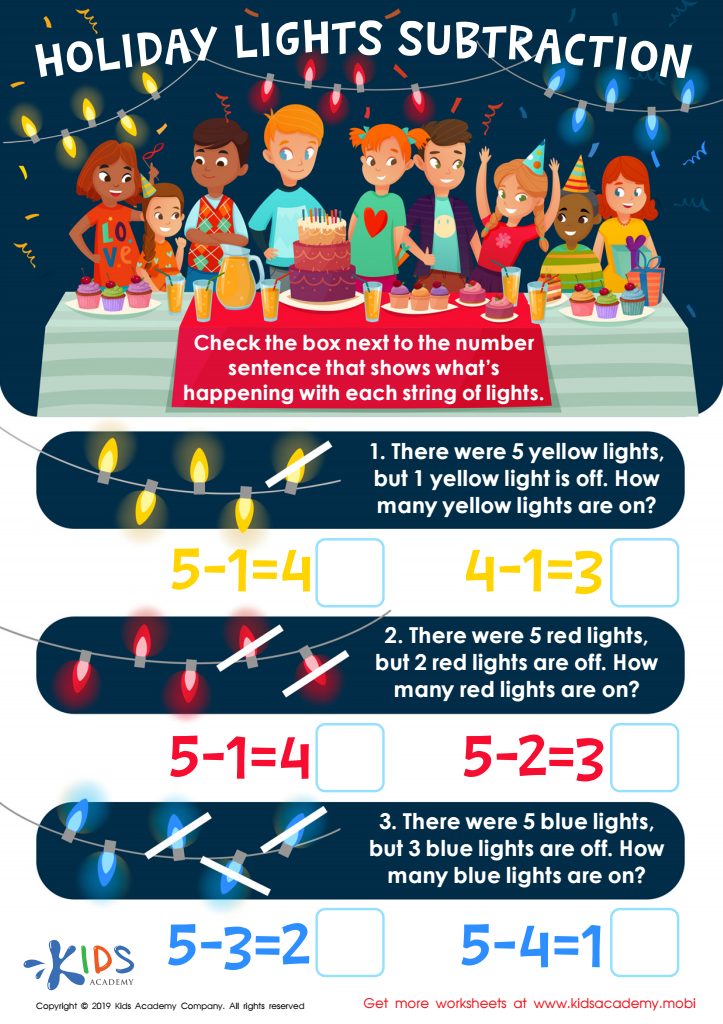

Holiday Lights Subtraction Worksheet
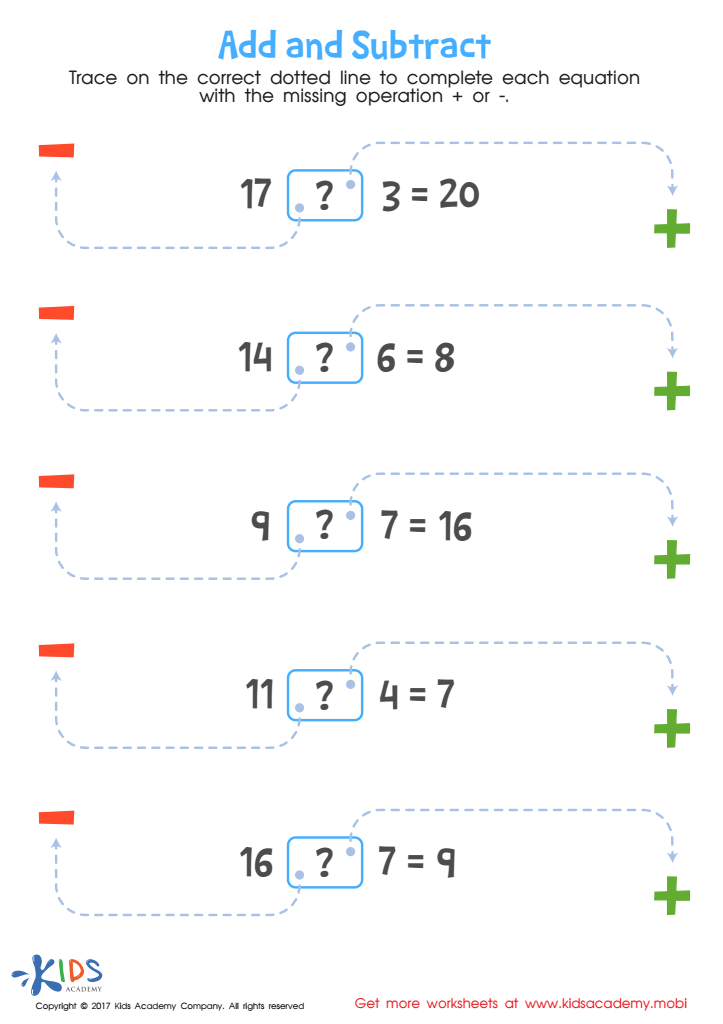

Add and Subtract Worksheet
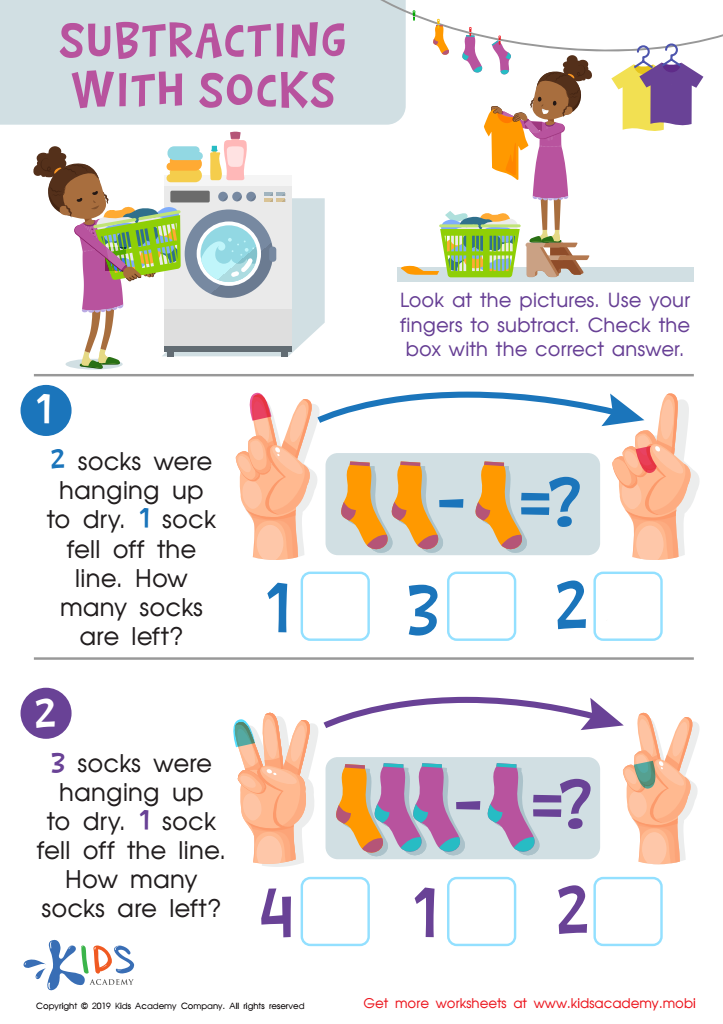

Subtracting Socks Worksheet
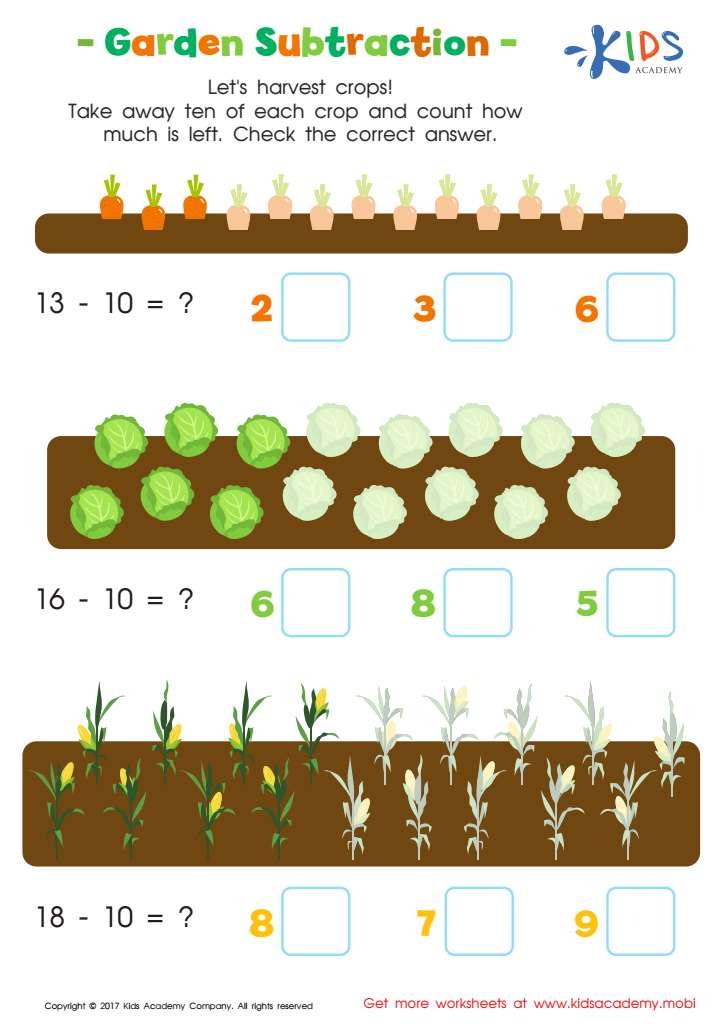

Garden Subtraction Worksheet
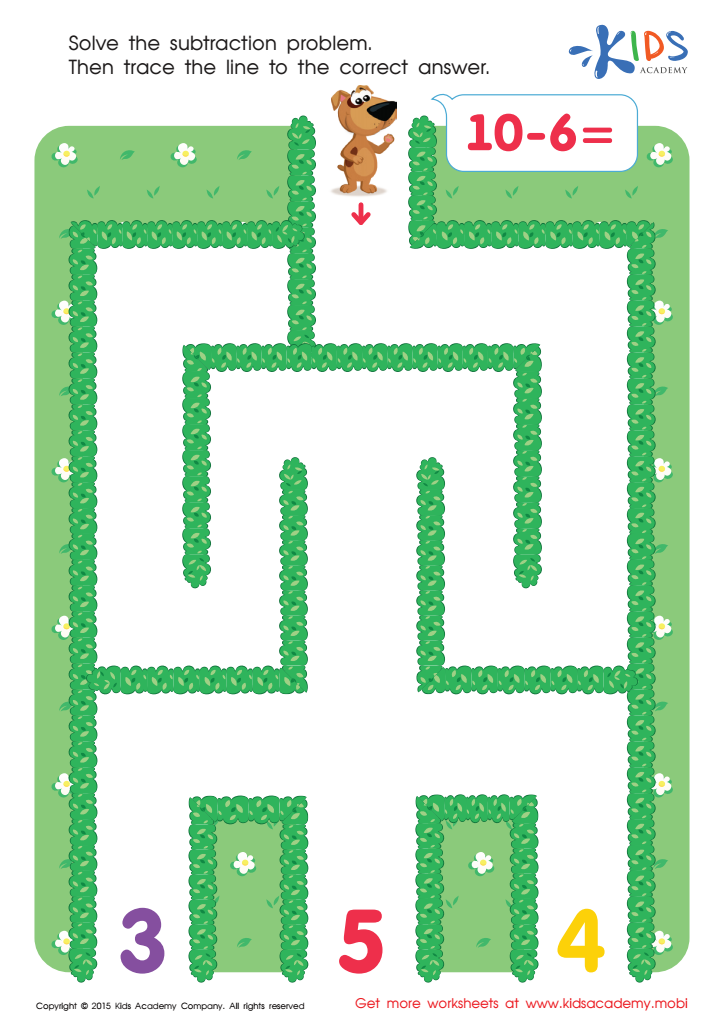

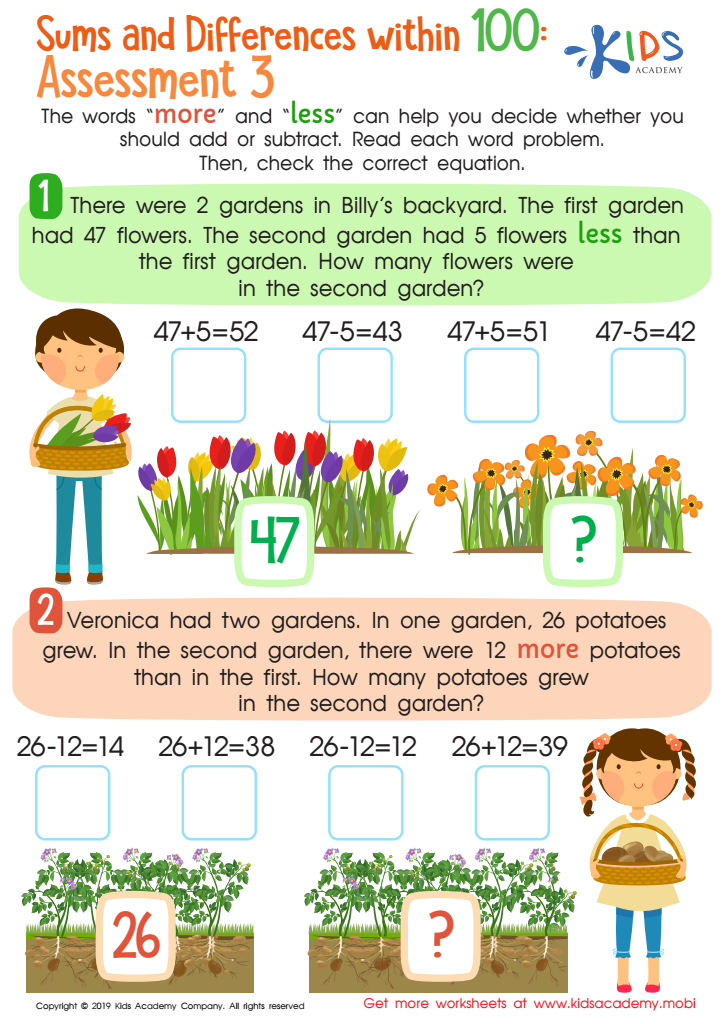

Sums and Differences Within 1 - Assessment 1 Worksheet
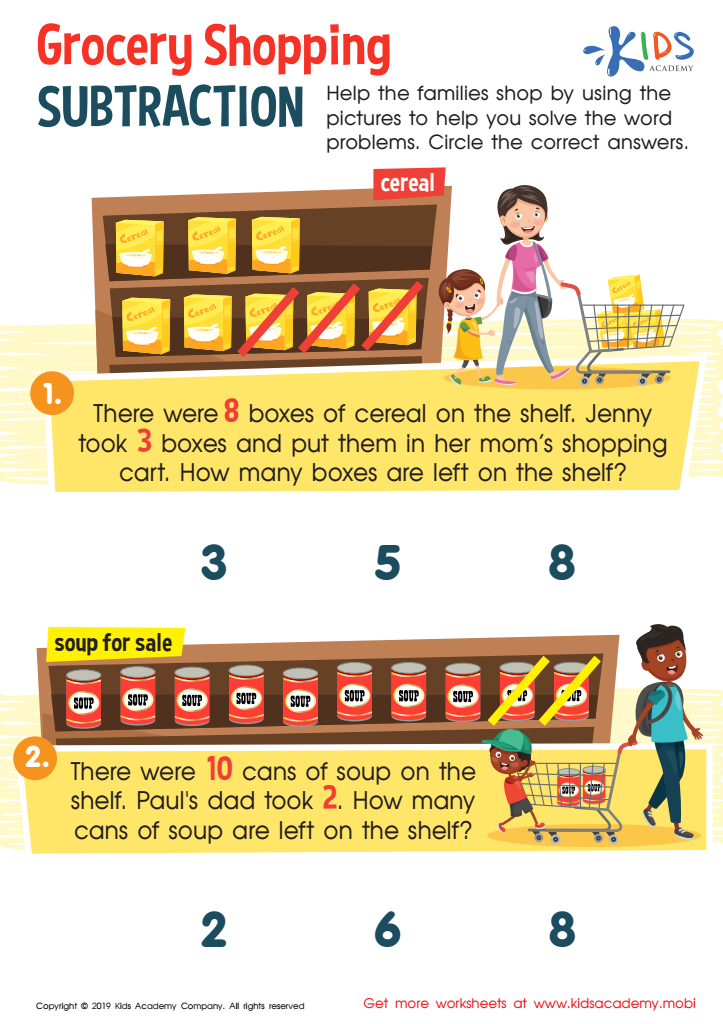

Grocery Shopping Subtraction Worksheet
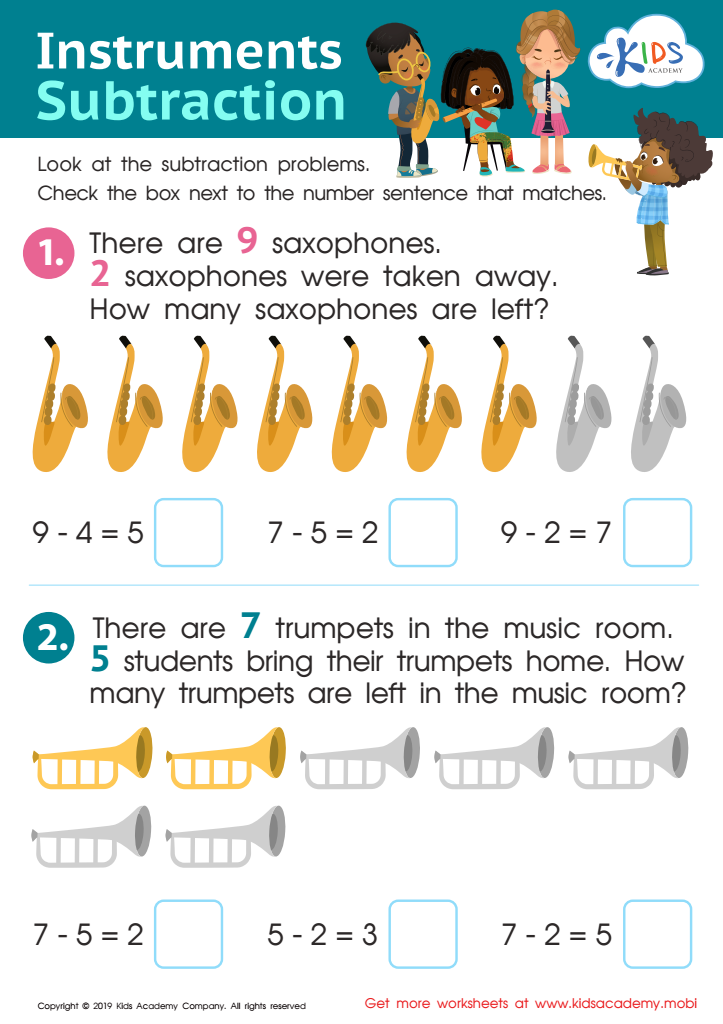

Instrument Subtraction Worksheet
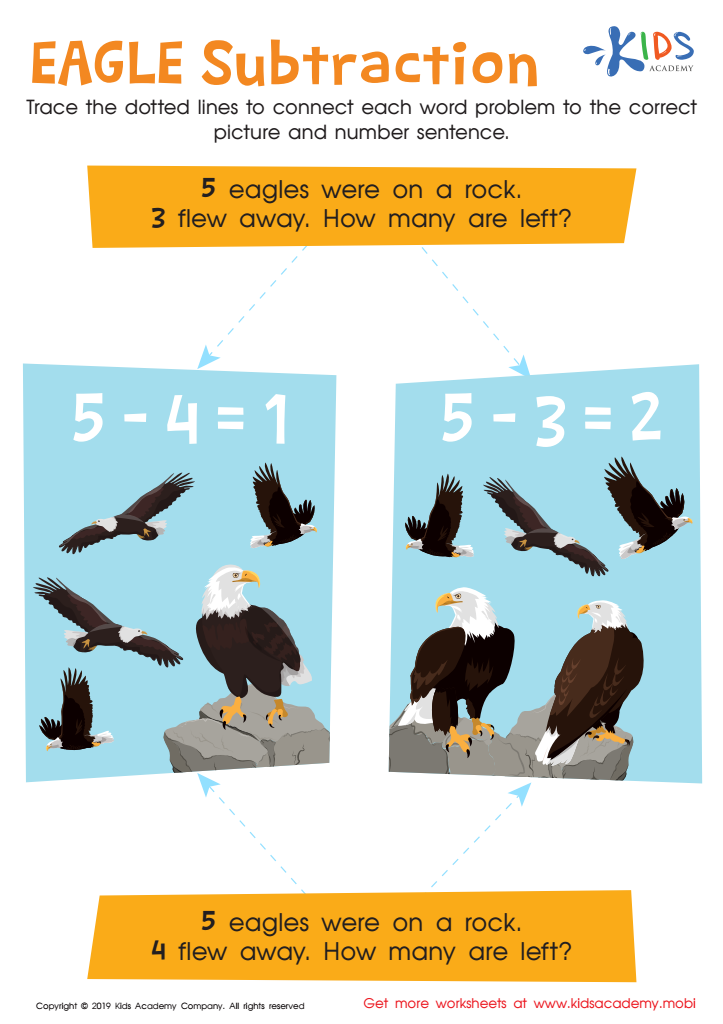

Eagle Subtraction Worksheet
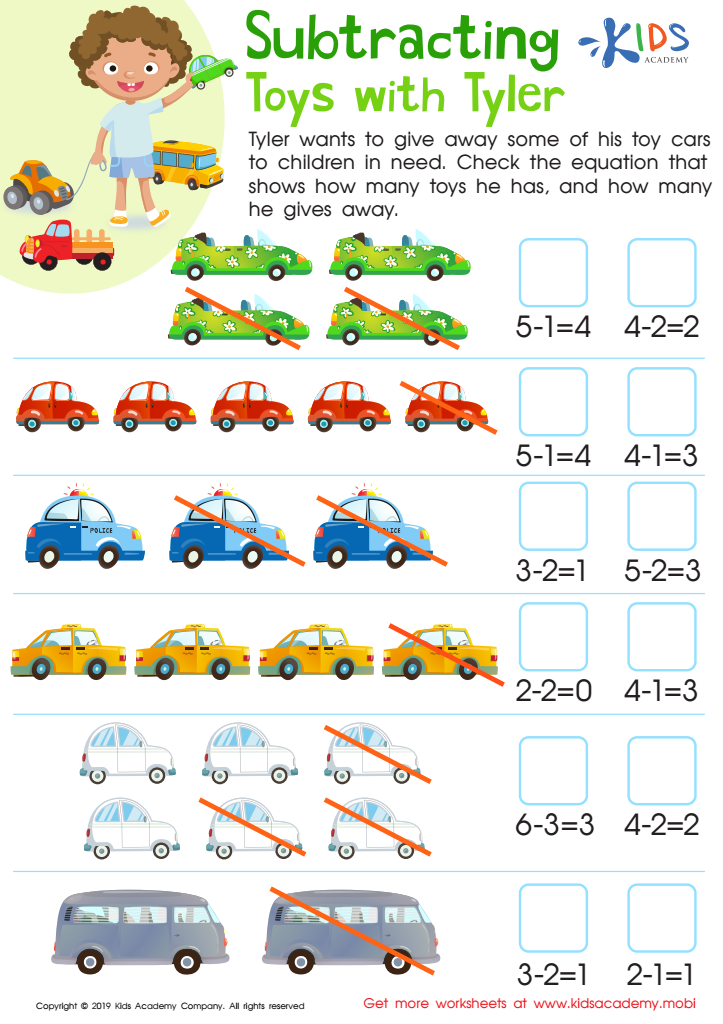

Subtracting Toys with Tyler Worksheet
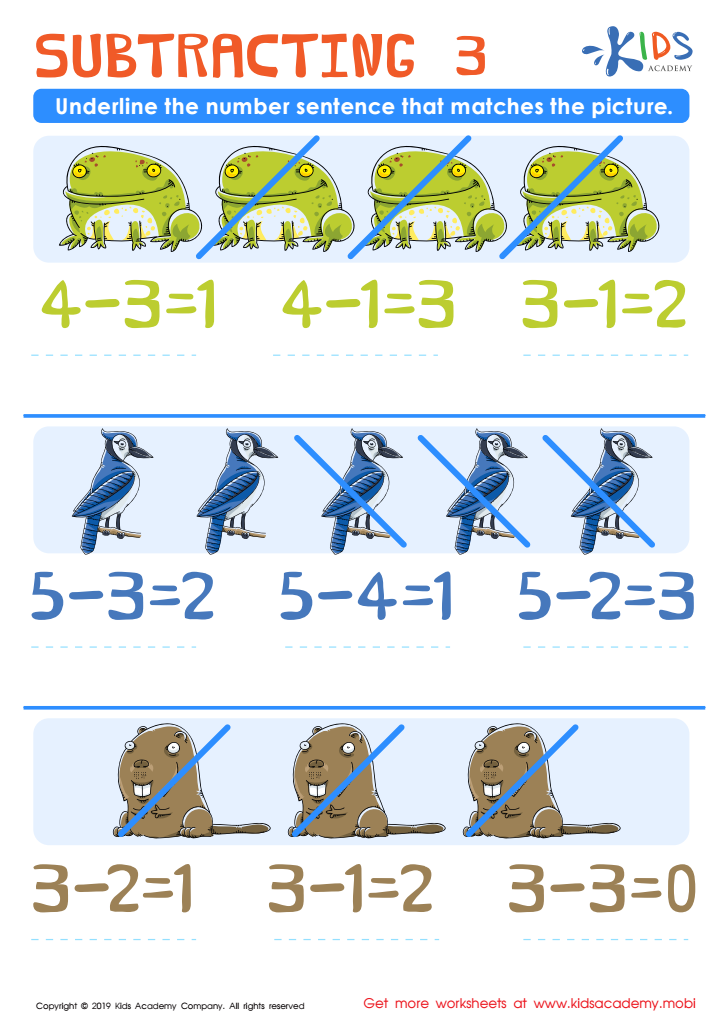

Subtracting 3 Worksheet
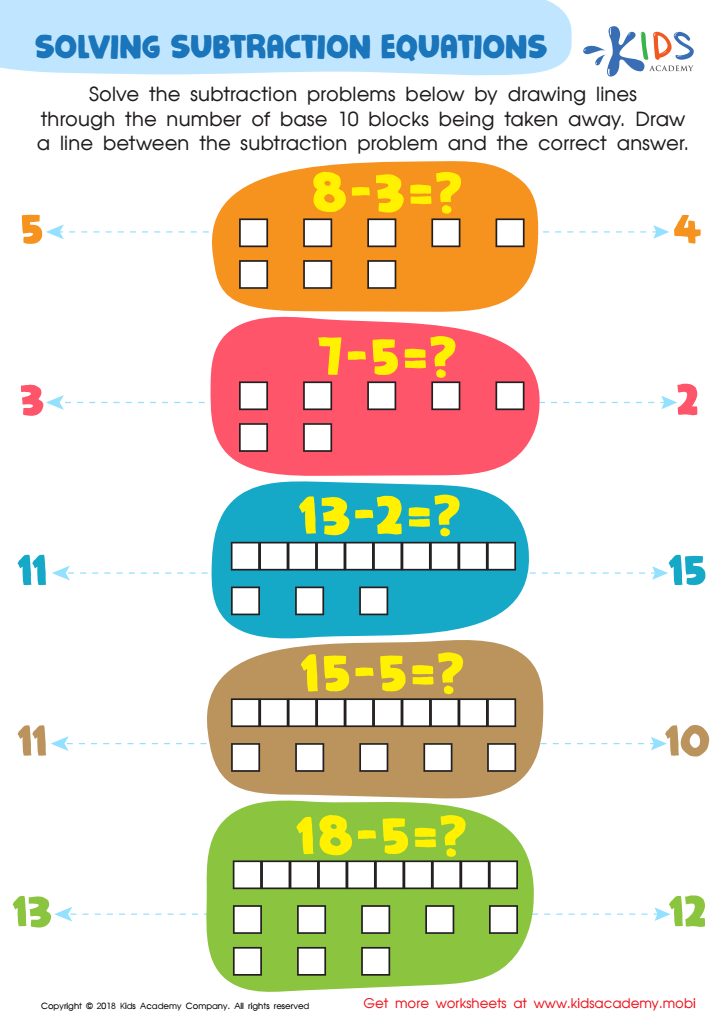

Solving Subtraction Equations Worksheet
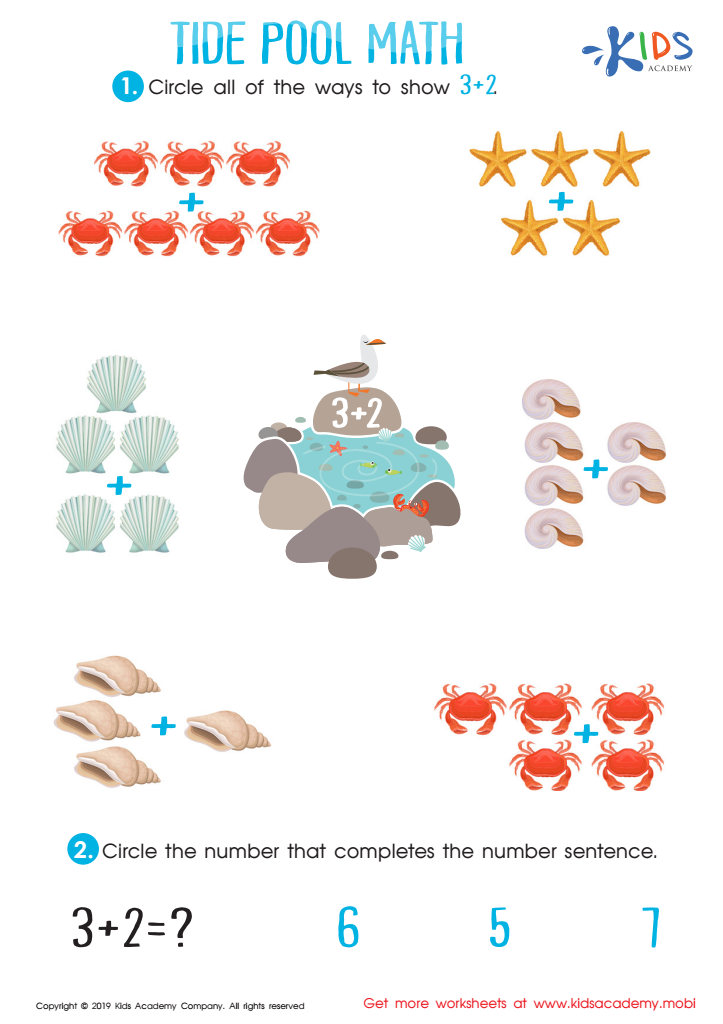

Tide Pool Math Worksheet
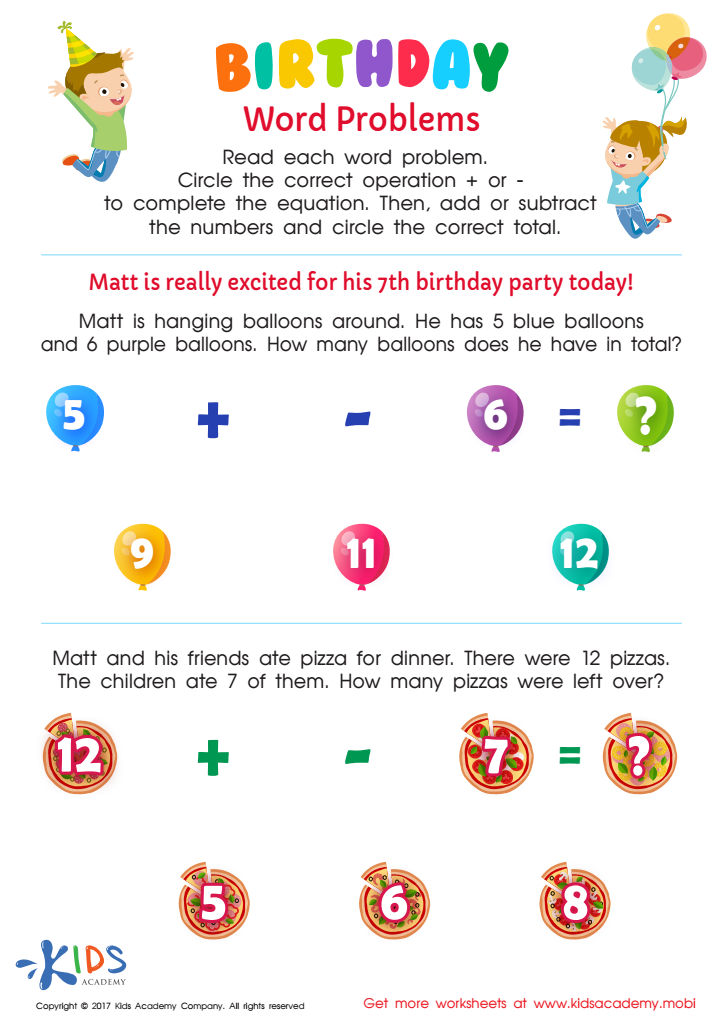

Birthday Word Problems Substraction Worksheet
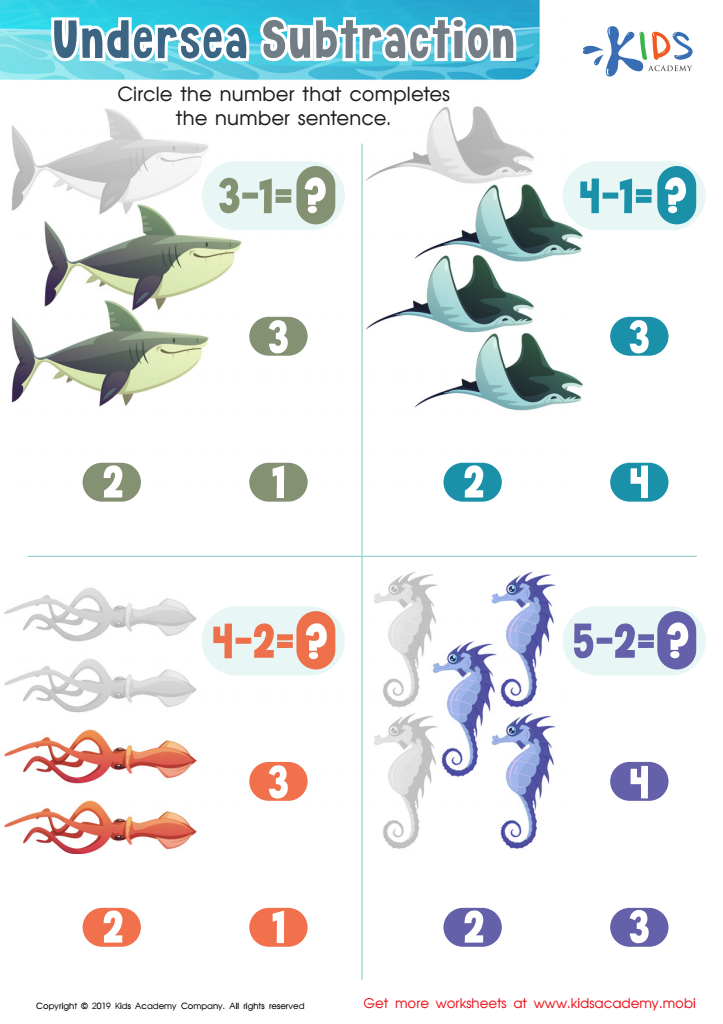

Undersea Subtraction Worksheet
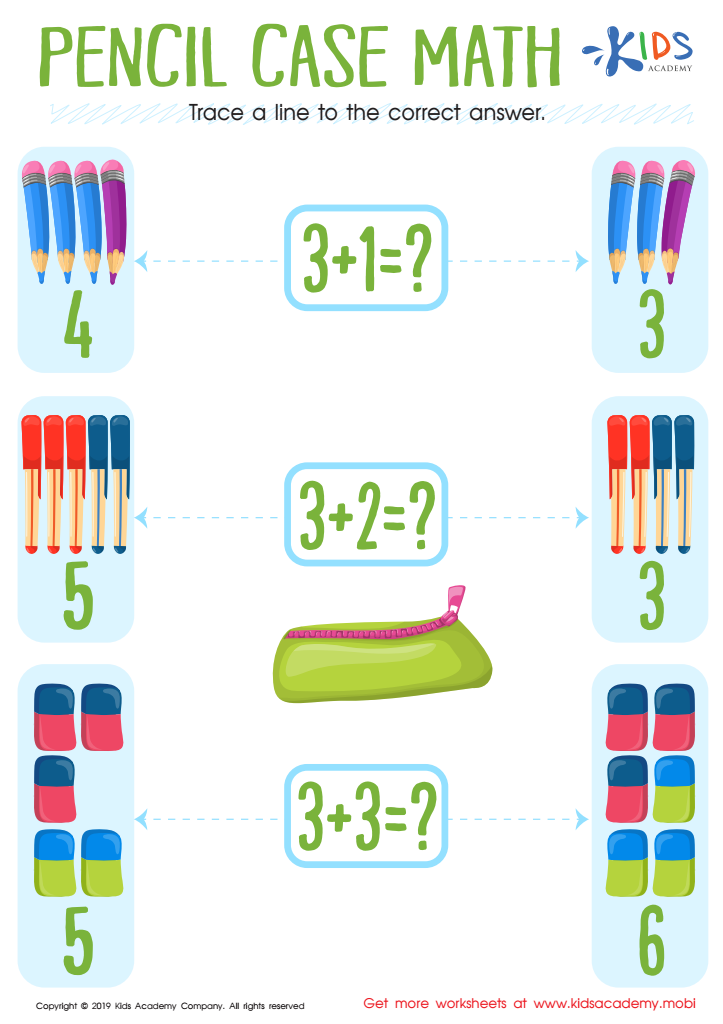

Pencil Case Math Worksheet
Subtraction and addition are foundational mathematical skills that serve as building blocks for more advanced math concepts. For 6-year-olds, practicing these operations is crucial for several reasons. First, understanding addition and subtraction helps improve their numerical literacy by cementing basic number sense and familiarity with figures. This early competence in manipulating numbers boosts their confidence and enthusiasm for math, providing a positive learning experience.
Moreover, these skills are not just essential for academic success but also for everyday problem-solving. From determining the number of items left when sharing toys to figuring out how much more they need to save to buy a treat, children use these math skills in practical situations. Early and consistent practice enhances cognitive development by encouraging logical thinking, pattern recognition, and the ability to make quick mental calculations.
Engaging young children in subtraction and addition drills aids in the development of fine motor skills when using manipulatives or writing out equations. It also fosters persistence and attention to detail, as children learn to check their work for accuracy. Parents and teachers who prioritize these fundamental skills are setting children up for a smoother academic journey and a lifelong comfort with numbers. Making learning these skills fun and relevant keeps young minds curious and eager to explore more complex mathematical concepts in the future.
 Assign to My Students
Assign to My Students
